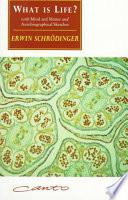"The Mystic Vision" as translated in Quantum Questions: Mystical Writings of the World's Great Physicists (1984) edited by Ken Wilber
Context: It is not possible that this unity of knowledge, feeling and choice which you call your own should have sprung into being from nothingness at a given moment not so long ago; rather this knowledge, feeling, and choice are essentially eternal and unchangeable and numerically one in all men, nay in all sensitive beings. But not in this sense — that you are a part, a piece, of an eternal, infinite being, an aspect or modification of it... For we should then have the same baffling question: which part, which aspect are you? what, objectively, differentiates it from the others? No, but, inconceiveable as it seems to ordinary reason, you — and all other conscious beings as such — are all in all. Hence, this life of yours... is, in a certain sense, the whole... This, as we know, is what the Brahmins express in that sacred, mystic formula... 'Tat tvam asi' — this is you. Or, again, in such words as 'I am in the east and in the west, I am below and above, I am this whole world.'
Thus you can throw yourself flat on the ground, stretched out upon Mother Earth, with certain conviction that you are one with her and she with you … For eternally and always there is only now, one and the same now; the present is the only thing that has no end.

